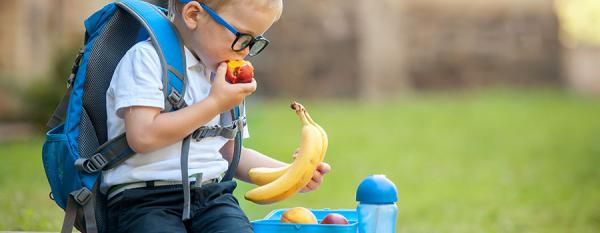

Preparing school lunchboxes is a big part of the daily routine for parents and carers with school-aged kids. It can also be a big part of household and school food waste and a waste of money if food is not eaten or thrown out.
Our food waste experts have selected the best tips to help parents and carers develop a food waste prevention routine when preparing school lunchboxes.
Prevent
- Involve your kids.
- Get them involved in choosing new lunchbox ingredients. Give them two options and let them pick one. They will be more likely to eat food they have chosen.
- Get your kids to help prepare their lunchboxes each morning or seek their 'okay' before packing their lunchbox.
- Cut up fruit and vegetables, rather than including whole pieces. Larger, whole fruits such as apples are often half eaten, which results in food waste.
- Get the quantity right. Pack the right amount of food for breaks and lunch.
- Involve the family. Learn about healthy eating and reducing food waste at home with activities from OzHarvest's FEAST at Home program.
- Get your school involved to inspire kids to eat healthy and waste less with OzHarvest's FEAST at Home program.
Reuse
- Eat it up. After school, encourage your kids to eat any leftovers in their lunchbox first before offering an afternoon snack from the fridge.
- Give vegetables a new life. When carrots have gone soft, place them in water to freshen them up. They make a great lunchbox snack.
- Chilled sandwiches. You can butter frozen bread straight from the freezer and sandwich it together with your kid's favourite fillings. The sandwich will be defrosted by lunch.
- Make frozen yoghurt. Yoghurt can be frozen to prolong its shelf life. Take it from the freezer in the morning and it will remain cold for lunchtime.
- Leftovers for lunch. Reuse leftovers from dinner in the lunchbox. Leftover pasta can make a great alternative to a sandwich.
- Bottle your own drinks. Reusable water bottles are better for drinks than boxed juice. There's less plastic waste and it's cheaper too!
Recycle
- Feed leftovers to pets if it is safe to do so. Check the RSPCA web guides on feeding animals.
- Compost leftovers. If there are any food scraps left in the lunchbox (e.g. apple cores, banana peels), place them in your home composting system.
Related links
**This article was updated in February 2024.**